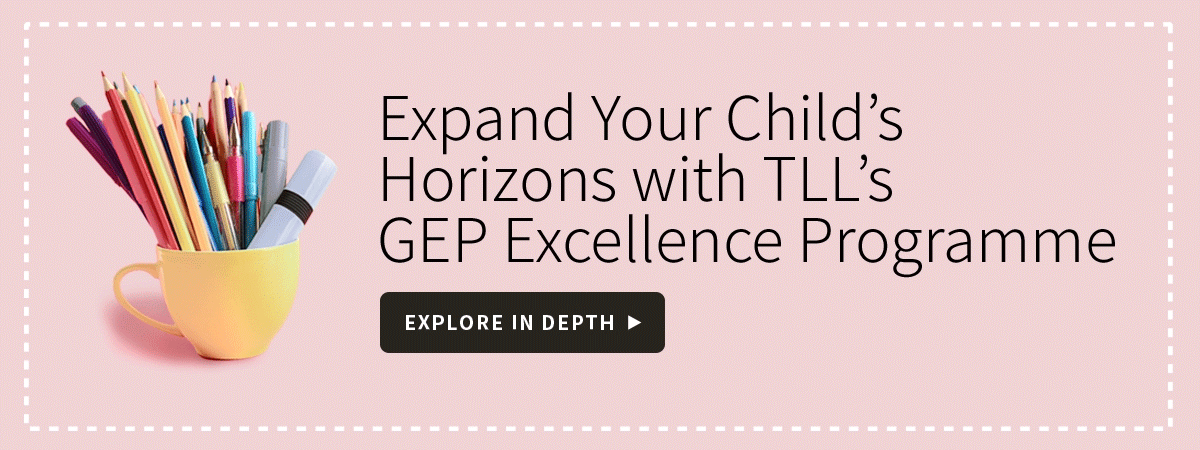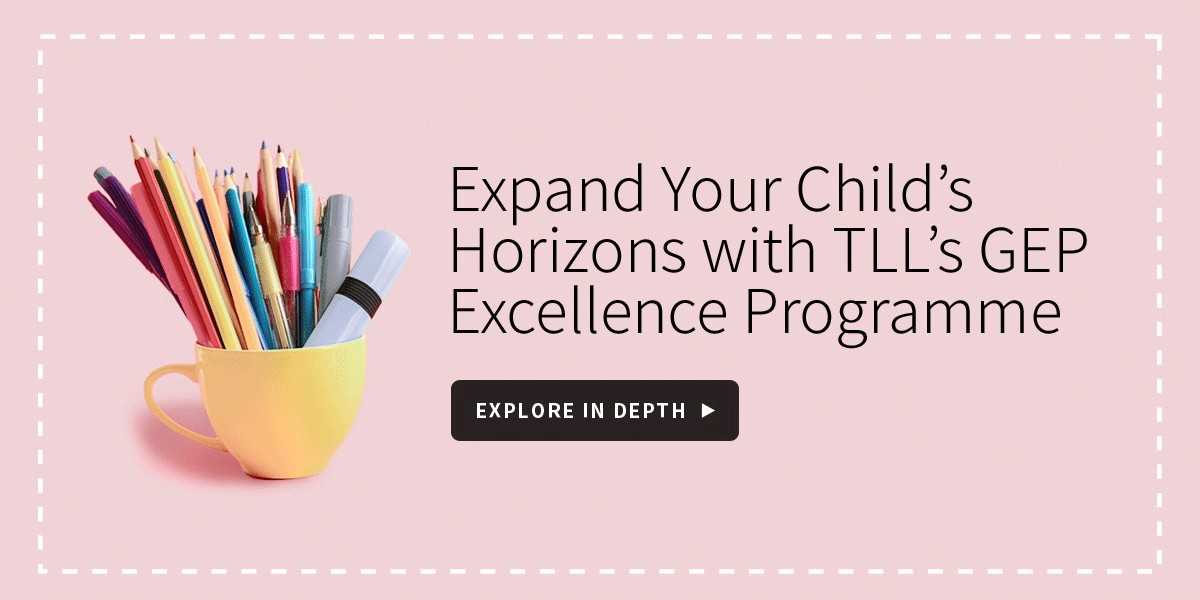
The Gifted Education Programme (GEP) has been around since 1984, and has over the years built up a reputation for being a gathering ground for the brightest young minds from each student cohort. It is a programme that caters specifically to the needs of intellectually gifted students, who are identified each year through a two-round screening process.
What, and how, GEP students are taught differ significantly in some ways from the regular curriculum, and this can really be a boon for children who are intellectually curious and love to explore topics in detail. The Ministry of Education says on its website, for example, that the GEP’s goals include developing intellectual depth and higher level thinking, and nurturing productive creativity.
Here are 3 ways thinking and learning in the GEP way can help your child, regardless of whether you are considering the GEP route or not.

1. Nurturing Independent Thinkers and Self-Directed Learners
The GEP places a premium on teaching students to become willing and independent thinkers who boldly sally forth on paths of inquiry they have chosen for themselves. For example, GEP students have to complete different kinds of project work collectively known as Individualised Study Options.
All Primary 4 GEP pupils are taught core research skills such as library research, data gathering, data analysis and report writing. In Primary 5, they can work on an in-depth research project based on their personal interests throughout the academic year, and which serves as an introduction to more advanced research work they will come across at the secondary and tertiary levels.
Having a child take ownership of a big project can open up whole new avenues in their intellectual and emotional development, as they become personally invested in their own learning instead of simply following instructions. It also teaches them soft skills like prioritising and planning for the long term.
To have the ability to think independently is to have the enthusiasm and courage to explore new subjects and issues, and also the discipline to sustain the interest to produce quality results. Regardless of how you come to acquire it, thinking independently is a skill that will serve many children well not just in the rest of their education journey, but also in their working lives as adults.

2. Exposure to Greater Breadth and Depth of Learning
The GEP is also known for exposing its students to a greater breadth and depth of content across the various subjects. Some of the content, such as algebra in Mathematics, can be advanced material that children outside the programme only come across in secondary school. Students are given the opportunity to go deeper into the concepts they learn, such as the origins of various number systems which hail from ancient civilisations like the Maya.
In English, children are also taught to write compositions based on exciting and fastastical genres, such as fairy-tales or mysteries, that push the boundaries of their creativity and imagination.
Meanwhile, Social Studies is an examinable subject for GEP students, meaning there is a whole curriculum of topics, assignments and tests to get through leading up to the PSLE.
Going deeper and broader can really help high-ability children thrive in the classroom, because they become more engaged with what they are learning while stretched to the limits of their capabilities.
At the same time, however, the greater academic rigour of the GEP may come as a bit of a shock to children who have gotten used to scoring well in their exams with ease in lower primary. In dealing with these consequences, children are taught valuable life lessons, including how to cope with setbacks and the value of commitment, discipline and hard work in order to achieve success.

3. A Vibrant and Diverse Learning Environment
One of the less appreciated benefits of the GEP is how it brings together bright and quirky children with a diverse assortment of interests to rub shoulders with each other on a daily basis. For children who may have always felt slightly out-of-place because of what they like and how they think, the GEP classroom is often the first where they feel they really belong. Suddenly they are among friends with the same sense of humour, or with a shared interest in the properties of symbiotic fungi.
And because the GEP identifies both children who are high achievers across the board and children who are exceptionally strong in one or two areas, GEP students are likely to come across peers who are equally bright yet radically different from them.
The meeting of different perspectives creates an incredibly fecund learning environment where opportunities abound for children to learn not just with each other but from each other.

Bringing To You the E(ducation) In GEP
Thinking and learning in the GEP way can offer manifold benefits if the methodology is the right fit for a child. But it is also important to keep in mind that the GEP is but one way for children to learn, and not necessarily always the best way either.
At The Learning Lab, we believe in the value of a holistic and multi-pronged approach to education, helping each child find their own path to success and fulfilment.
If you are interested in exploring how your child would respond to GEP classes, the Learning Lab offers an extensive GEP Excellence Programme covering English, Maths and General Ability that provides specialist guidance for the GEP screening exercise.
Our GEP programme also fosters critical thinking skills, higher-order thinking and spatial awareness while incorporating real-world topics for discussion — skills that the GEP inculcates but which are useful for children both inside and outside the GEP.
The Learning Lab is now at locations. Find a location that suits your needs.
If you have any questions about our range of programmes or class schedules, you may contact us at 6733 8711 or drop us an email at enquiry@thelearninglab.com.sg.



